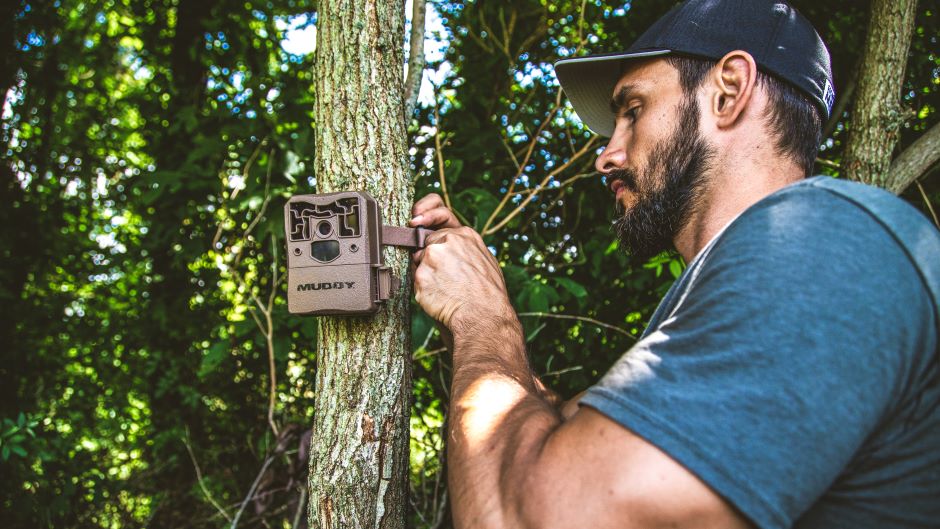Owning land is a dream of many. Unfortunately, owning land comes with its own responsibilities, such as regulating who has access, how it’s used and understanding the liability of trespassers. We as landowners aren’t always living on this land or are able to keep an eye on it like we would our own backyard. Even if a parcel is in our backyard, it could span well out of sight if there’s a significant acreage.
Activities like hunting, biking, hiking, off-roading, you name it, can lead to injury and expose you to legal ramifications if someone were to get hurt. Regardless if someone is permitted or is trespassing, the rights to sue for medical bills are the same.
Without clear boundaries, markers, and signs, the public could easily mistake your land for public land. Labeling your property lines with signage, fencing, and ribbon and reinforcing them with tactics such as trail cams and lease agreements to trusted individuals can help deter trespassers and hopefully alleviate your liability of trespassers.

What Happens if Trespassers Get Hurt on My Land?
Trespassers that are injured on our land, or if they damage any structures or brush on our land, have as much of a right to sue for those injuries as someone with permission. Not only can this be in the form of a personal injury lawsuit, but they can also file a premises liability claim.
Often, Medical bills are sued for. Depending on the extent of the injury this can be a hefty sum. Unfortunately, even if a person didn’t have clear permission to be on the property, it’s our responsibility as landowners to mark our property and make clear who is allowed within those boundaries and who isn’t.
How Do I Protect My Land From Trespassers?
Trespassers can be tricky to deter. Some are accidental trespassers, but there are those that understand they are trespassing and still don’t care. To ensure that you protect yourself, your land and your liability of trespassers in and out of the courtroom it’s best to make sure your property line is clear. Signage should be posted visibly from many angles and entry points.
A very beneficial way to help further decrease trespassing is leasing out your land to trusted hunters or outdoorsmen. They can be a second set of eyes keeping a watch on things. Good hunters will be able to figure out if there are trespassers around pretty quickly, and will often run them off for you. Plus, you can make a good income from leasing hunting rights!
Marking Property Lines
The first step to keeping trespassers off your property is to make sure the line is clearly marked. Fencing is often the best initial option but these boundaries can be vague in a legal sense. Pairing good fencing with signage, however, can clearly tell anyone that doesn’t have explicit permission that they are not allowed to be there.
Fencing is a great way to mark property lines, deter trespassers, and keep out certain wildlife if desired. Cattle panels, barbed wire, high-tensile wire, traditional wood fencing, chain link, and even electric fencing for pasture can all be used; this depends more on the terrain and budget.
Signage, Tape, & Paint
Proper signage is a good way to clarify what activities or presence is allowed within a boundary. For outdoor signs, it’s imperative that these are fade resistant, durable, and easily visible. AHLA’s No Trespassing signs are a perfect solution for a bright, hi-vis, and clear option for a property line. Make sure to space these according to your state regulations, conspicuously along the boundaries of your property.
Often, people will choose bright-colored property tape or paint markings. In some rural areas, it can be difficult to keep signage intact, and often landowners will pair signage with hunting leases and a purple boundary paint at 100-yard intervals. While this alone doesn’t deter everyone, in certain states it can be used if pressing trespassing charges against an individual.
Purple paint indicates that unless there is express written permission from the landowner, all hunting, fishing, or trapping is prohibited. Paired with no trespassing signs, this covers hikers, bird watchers, or campers as well.

More Explicit Trespasser Deterrents
Trail cameras are a great way to track movement through a property, not just for big bucks. Now trail camera uploads and live videos are more accessible than ever, and they can be camouflaged easily and placed around any entrance to your property.
Try to position them looking down a property line to catch anything crossing it or well within the property itself to ensure whatever is in frame can’t be argued that they were outside those property lines or the camera angle wasn’t accurate.
Hunting leases are an exceptional way to have a second (or third, or fourth) pair of eyes on a property that we may not be able to frequent. A trusted hunter is going to have the land’s best interest at heart, and many are more than happy to keep an eye out for trespassers.
If you are considering leasing to hunters to add an extra layer of trespasser deterrent, a proper hunting lease agreement, and insurance are necessary. Basecamp leasing is a great place to list your property, and we can walk you through the entire process from A to B.
Closing Thoughts
There’s always a chance of injury when outdoors. Whether an individual is on a property with permission or trespassing, a landowner can easily be dragged into a courtroom and sued for medical bills for their liability of trespassers. While signs and lines of demarcation are a good start, often more is needed.
Leasing your property out to hunters is a great way to deter most trespassers. Hunters cannot be out there 24/7, but they will deter most trespassers. Plus, if someone is going to be on your land, you may as well profit from it. A hunting lease can bring in thousands of dollars a year and more than cover your property taxes.

Excellent with 540 acres in the northwoods we have already previously followed much of your guidance other than the purple paint
Glad to hear that Mike. We always take pride in helping our landowners in any way. Hopefully, all these tactics have kept trespassers away!
How much land do you consider enough to rent
It all depends. Certain locations, characteristics and other factors determine what the minimum acreage is right for our program. But we like to say 40 acres or more. Fell free to give us a call if you have questions. (866) 309-1507